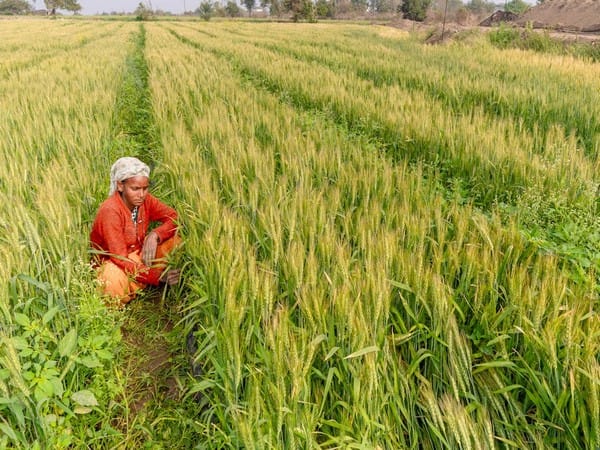New Delhi [India], September 2 (ANI): The Union Cabinet, chaired by Prime Minister Narendra Modi, has approved seven key schemes with a total financial outlay of Rs 13,966 crore.
According to the Ministry of Agriculture and Farmers Welfare, these initiatives are designed to address various challenges in agriculture, with a focus on sustainability, income enhancement, and climate resilience.
The Digital Agriculture Mission, with an allocation of Rs 2,817 crore, is at the forefront of this transformative effort. This mission leverages modern technology to improve the lives of farmers, building on the foundation of Digital Public Infrastructure.
The initiative will employ tools such as artificial intelligence (AI), big data, and geospatial technologies to revolutionise agricultural practices.
Key components of the mission include the Agri Stack, a comprehensive digital repository of agricultural data; the Farmers Registry and Village Land Maps Registry, which will create a digital record of landholdings and farmers; and the Krishi Decision Support System, which will assist in crop monitoring and decision-making.
Additionally, the mission aims to enhance market connectivity by directly linking farmers with buyers, thereby reducing the influence of middlemen.
Another major initiative, Crop Science for Food and Nutritional Security, has been allocated Rs 3,979 crore. This scheme is focused on ensuring food security and enhancing the nutritional value of crops by 2047.
It emphasises strengthening agricultural research and education, with a particular focus on genetic improvement and resource management for food, fodder, pulses, oilseeds, and commercial crops.
The initiative also aims to prepare farmers for the challenges posed by climate change, ensuring that India’s agricultural sector remains resilient in the face of environmental shifts.
To modernise agricultural education and research, the Cabinet has allocated Rs 2,291 crore for the Strengthening Agricultural Education, Management, and Social Sciences scheme.
This initiative aligns with the New Education Policy 2020 and seeks to equip the next generation of agricultural professionals with the skills needed to address contemporary challenges.
The scheme will incorporate advanced technologies such as AI, Big Data, and remote sensing, while also promoting natural farming and climate resilience.
Recognising the importance of livestock and dairy farming in enhancing farmers’ incomes, the Cabinet has approved the Sustainable Livestock Health and Production scheme with a budget of Rs 1,702 crore.
This initiative covers a broad spectrum of activities, including animal health management, veterinary education, dairy production, and technology development. It also focusses on the genetic improvement of livestock breeds and the promotion of efficient production practices.
The Sustainable Development of Horticulture scheme, with an outlay of Rs 860 crore, is aimed at increasing farmers’ income through the cultivation of a diverse range of horticultural crops.
This scheme will support the development of tropical, sub-tropical, temperate, root, tuber, and bulbous crops, as well as commercial and medicinal plants. By promoting horticulture, the government hopes to diversify agricultural income sources and boost overall productivity.
In addition to these initiatives, the Cabinet has earmarked Rs 1,202 crore for the strengthening of Krishi Vigyan Kendras (KVKs). These centers play a crucial role in disseminating knowledge and best practices to farmers across the country, helping to improve their productivity and income. The strengthening of KVKs will ensure that farmers have access to the latest agricultural techniques and innovations.
Finally, the Natural Resource Management scheme, with a budget of Rs 1,115 crore, is focused on the sustainable management of natural resources.
This initiative is essential for ensuring the long-term viability of agricultural practices while also protecting the environment. By promoting sustainable resource management, the government aims to safeguard the future of Indian agriculture. (ANI)
This report is auto-generated from ANI news service. ThePrint holds no responsibility for its content.






